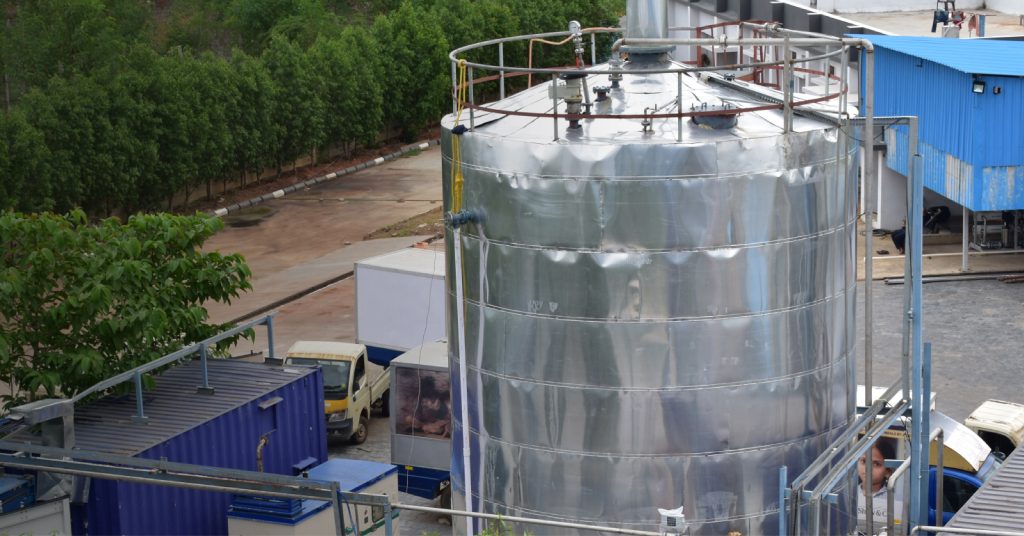In today’s rapidly urbanizing world, solid waste production has reached unprecedented levels. Global annual waste generation is expected to jump to 3.4 billion metric tons by 2050, a stark increase from the 2.01 billion metric tons recorded in 2016. This alarming trend underscores the critical importance of proper solid waste management. As we face this challenge, understanding the advantages of solid waste management becomes crucial for communities, businesses, and governments alike.
Advantages of Solid Waste Management
-
Environmental Benefits: Preserving Our Planet
One of the primary advantages of solid waste management is its positive impact on the environment. Effective waste management practices reduce pollution, prevent the degradation of natural landscapes, and conserve biodiversity. By recycling and composting, we can divert waste from landfills, reducing the strain on these facilities and minimizing the release of harmful greenhouse gases.
-
Economic Advantages: Turning Trash into Treasure
Solid waste management offers significant economic benefits by creating job opportunities in the recycling, waste collection, and processing industries. Additionally, the recycling of materials can lead to substantial cost savings for businesses and municipalities. Properly managed waste can be transformed into valuable resources, generating revenue and contributing to the circular economy.
-
Public Health Improvements: Safeguarding Communities
Improper waste disposal can lead to serious public health issues, including the spread of diseases and contamination of water supplies. One of the critical advantages of solid waste management is the protection of public health. By ensuring that waste is collected, treated, and disposed of properly, we can reduce health risks and create safer living environments for communities.
-
Energy Production: Waste-to-Energy Solutions
Innovative waste-to-energy technologies convert non-recyclable waste into usable energy, providing a sustainable alternative to fossil fuels. These technologies not only help in managing waste but also contribute to energy production, reducing our reliance on traditional energy sources. The energy generated from waste can power homes, industries, and public facilities, showcasing one of the many advantages of solid waste management.
-
Resource Recovery: Closing the Loop
Resource recovery is a key component of modern waste management strategies. By extracting valuable materials from waste, we can reduce the demand for virgin resources and decrease environmental degradation. This process, known as closing the loop, is one of the most significant advantages of solid waste management, promoting sustainability and resource efficiency.
-
Technological Advancements: Innovations in Waste Management
Advancements in technology have revolutionized solid waste management, making it more efficient and effective. Innovations such as automated waste sorting, smart bins, and advanced recycling techniques have enhanced the ability to manage waste sustainably. Embracing these technologies is crucial for maximizing the advantages of solid waste management.
Ion Exchange: Pioneering New Frontiers in Solid Waste Management
Ion Exchange offers advanced technologies for sustainable solid waste management through resource recovery. Their Integrated Waste Management System treats chemical, biological, and oily sludge generated during waste treatment processes. Additionally, Ion Exchange provides customized and pre-designed waste-to-energy plants that utilize advanced technologies to convert municipal solid waste and sludge into clean water, energy (heat and power), and organic fertilizers, thereby embracing the principles of the circular economy.
- Sludge Dewatering: It is a crucial process in wastewater management, offering efficient solutions to reduce sludge volume and disposal costs. It includes a range of products such as centrifuges, which use high-speed rotation to separate water from solids, and belt filter presses, which compress the sludge between two filter belts to extract water. Screw presses provide a continuous and effective method for dewatering with minimal maintenance, while faecal sludge treatment focuses on safely managing and processing human waste. These technologies collectively enhance the efficiency and sustainability of waste management practices.
- Waste to Energy: The INDION Waste to Energy System offers an advanced, integrated process for energy recovery by combining wastewater and organic solid waste treatment. This cost-effective solution employs a novel blend of proven technologies to tackle the challenges of sludge and municipal solid waste management. Unlike conventional systems that consume significant energy, the INDION system is a net power generator, ensuring environmental protection and resource recovery simultaneously. This holistic approach to energy, waste, and wastewater management not only addresses waste issues but also contributes to sustainable energy production, making it a pioneering solution in waste management.
Solid Waste Management – For a Sustainable Future
Solid waste management has many important benefits, encompassing environmental protection, economic benefits, public health improvements, and more. As we face the growing challenge of waste production, it is imperative to adopt effective waste management practices. By doing so, we can pave the way for a cleaner, healthier, and more sustainable future.
Connect with Ion Exchange experts to discover the benefits of advanced solid waste management.


